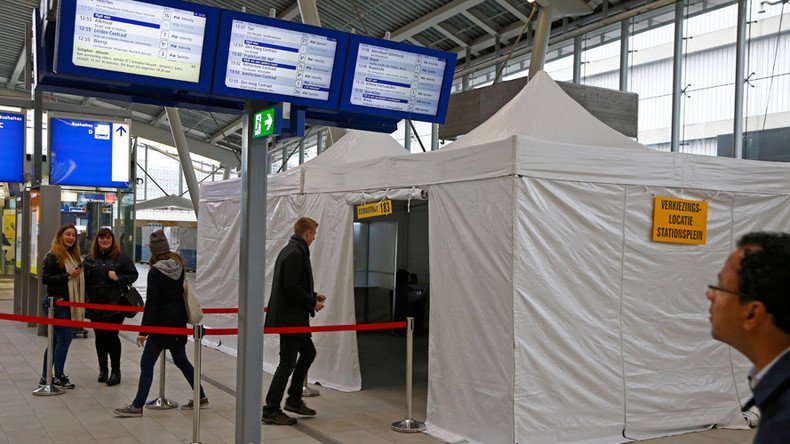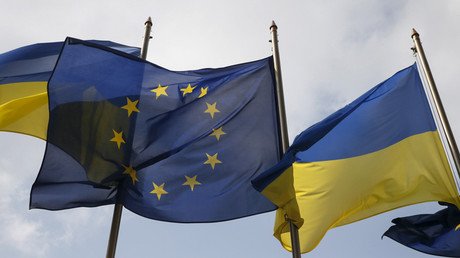Dutch consider dropping referendums as EU-Ukraine deal is implemented despite nations’ ‘no’ vote

The parties in talks to form a new Dutch government are negotiating a proposal to scrap advisory referendums, local media report. The plan comes as the EU-Ukraine association deal takes full effect, on which the country voted overwhelmingly against.
READ MORE: Ukraine's association deal bittersweet with no real hope for EU integration
The four parties are considering scrapping the right of Dutch citizens to vote on legislative changes in non-binding consultative referendums, the Telegraaf reported on Thursday, citing anonymous sources. The parties, which include the Party for Freedom and Democracy, the Christian Democrats (CDA), the Christian Union, and the liberal D66, are also said to have discussed the introduction of elected mayors.
“I won’t get ahead of matters that we are negotiating and on which there is no agreement yet,” the D66 (Democrats 66) leader, Alexander Pechtold, told RTL Nieuws.
READ MORE: 61% of Dutch voters reject association with Ukraine – final referendum results
The news comes as the association agreement between the EU and Ukraine comes into force on Friday, the ratification of which was widely rejected by Dutch voters in the 2016 consultative referendum. With a 32-percent turnout, slightly more than the required minimum to make the results valid, 61 percent voted against the deal.
Although the outcome was non-binding, it was supposed to force the government to reconsider the agreement. “It means the government must handle the result and the debate with due care,” the foreign minister wrote in a letter to the lower house of parliament. Prime Minister Mark Rutte said at the time it was politically impossible for his government to pass it in its existing form.
However, the Dutch House of Representatives adopted it in February, with the Senate ratifying it on May 30, which allowed the EU to officially launch the treaty with Ukraine. Meanwhile, the Dutch consultative body to the government, the Council of State, said in a report released a year after the vote that the thoughtless use of referendums and other forms of “people’s democracy” don’t work well with representative democracy in the country. Politicians who call referendums create false expectations among the voters, who have their hopes raised, but have less power than they think, according to the council’s vice president, Piet Hein Donner, according to de Volkskrant.
Last year’s referendum was the first time Dutch citizens hit the polls since 2015, when the consultative referendum law allowed people to vote on regulations and treaties, excluding issues concerning the royal family, constitutional amendments, and the budget. To trigger a referendum, 300,000 signatures should be collected within six weeks after the initial request. More than 472,000 people signed the Ukraine referendum request.













